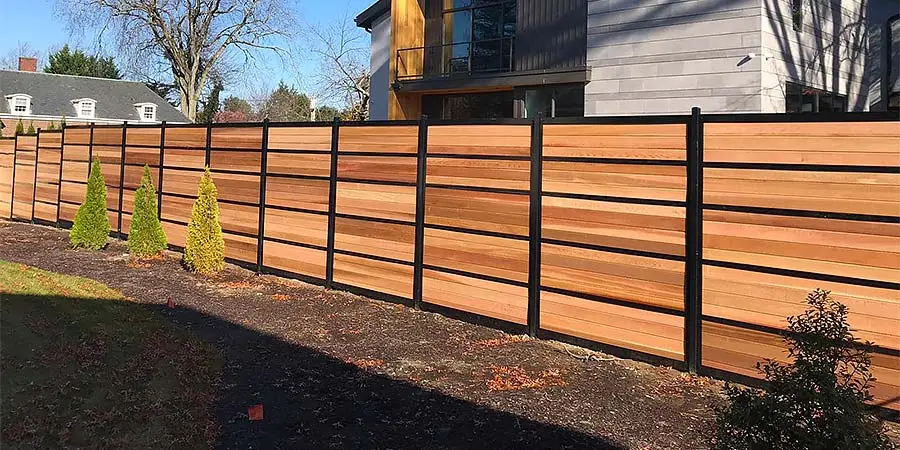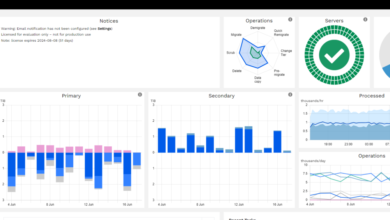The Process of Custom Fence Design with a Fencing Company

Understanding the process is crucial for achieving a satisfactory result when embarking on a custom fence design project. Working with a fencing company provides access to professional guidance and various options tailored to your needs. Each step, from initial consultations to final installations, is pivotal in creating a fence that meets aesthetic and functional requirements. We will explore the various phases of custom fence design, focusing on collaborating effectively with a reputable fencing company in Maryland to ensure the project aligns with your vision and requirements.
Initial Consultation and Planning
The first step in the custom fence design process is the initial consultation with the fencing company. This phase involves discussing your specific needs, preferences, and overall goals for the fence. During this meeting, you’ll outline the fence’s purpose—whether for privacy, security, aesthetic appeal, or a combination of these factors. The fencing company will take note of your requirements and provide insights into various materials, styles, and design options that best fit your needs. The planning stage also includes assessing the site where the fence will be installed. This involves measuring the area, noting obstacles, and evaluating the terrain to determine the most suitable fence design and installation methods. Proper planning ensures the final design aligns with your vision and addresses potential challenges.
Design and Material Selection
Once the initial consultation is complete, the next phase is design and material selection. You’ll work closely with the fencing company during this stage to refine the design. This includes choosing the style, height, and layout of the fence. Many companies offer design options, from traditional picket fences to modern horizontal slats. Additionally, material selection plays a crucial role in the design process. Options may include wood, vinyl, aluminum, or chain-link, each with advantages and considerations. The choice of material impacts not only the appearance but also the durability and maintenance requirements of the fence. The fencing company will provide samples, color choices, and recommendations based on your preferences and the overall design objectives.
Permits and Regulations
Before constructing the custom fence, it is essential to address permits and regulations. Local regulations and zoning laws often dictate specific requirements for fence installation, such as height restrictions, materials, and placement. The fencing company can assist in navigating these regulations and obtaining any necessary permits. This step ensures the fence complies with local codes and avoids legal issues. It’s important to factor this process into your project timeline, as obtaining permits can sometimes take additional time. Addressing these requirements early can avoid delays and ensure that your fence meets all legal standards.
Installation and Quality Assurance
With the design finalized and permits secured, the next phase is the installation of the custom fence. The fencing company will schedule a date for installation and coordinate the logistics. During this phase, professional installers will carry out the construction according to the agreed-upon design and specifications. It’s essential to ensure that the installation is conducted with precision and attention to detail to guarantee the fence’s durability and functionality. The fencing company will also perform quality assurance checks to verify that the installation meets industry standards and your expectations. If any issues or adjustments are needed, they will address them promptly to ensure a satisfactory outcome.
Final Review and Maintenance
After the installation, the final review is conducted to ensure that the fence meets all design and quality standards. The fencing company will walk you through the completed project, addressing any concerns or final adjustments. This phase also includes discussing maintenance requirements for the fence, as different materials have varying upkeep needs. The company will guide you on how to care for the fence to ensure its longevity and appearance. Regular maintenance is crucial for preserving the fence’s functionality and aesthetic appeal. The fencing company may offer maintenance services or recommend best practices for keeping the fence in optimal condition.
Budgeting and Cost Considerations
Budgeting is an essential aspect of the custom fence design process. Before starting the project, it’s necessary to establish a clear budget that encompasses all aspects of the fence installation, including materials, labor, permits, and any additional features or customizations. The fencing company can provide a detailed estimate based on your design preferences and the scope of work. Including a contingency in your budget for unexpected costs that may arise during the installation process is advisable. Understanding the cost breakdown helps make informed decisions about material and design options. By communicating openly with the fencing company about your budget constraints, you can find solutions aligning with your financial parameters while achieving the desired outcome. Effective budgeting ensures the project remains on track financially and meets your expectations without financial strain.
The process of custom fence design with a fencing company involves several key stages, each contributing to the successful completion of the project. From initial consultations and design planning to installation and final review, every step is essential in creating a fence that meets your needs and preferences. Collaborating effectively with the fencing company and understanding each phase of the process helps ensure a positive outcome. You can achieve a custom fence that enhances your property and fulfills its intended purpose by addressing design, material selection, regulations, and maintenance.





